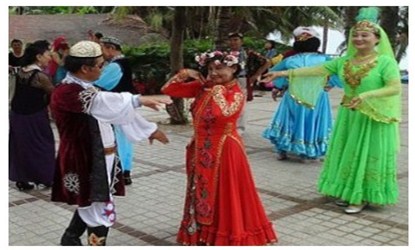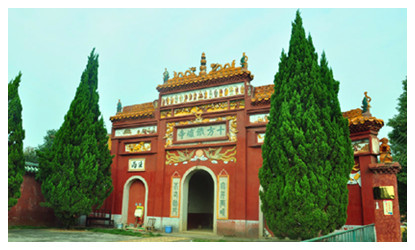Skype: neodalle-travel
Tel: +86 135 7447 2266
E-mail: sales@zhangjiajieholiday.com

 With a sizable population of 97.37 thousand, the Hui ethnic minority is Hunan's most widely distributed ethnic minority. People of Hui origin can be found in most of the cities throughout the province, especially in Taoyuan, Hansou, Dingcheng, Lixian of Changde City, Longhui, Shaodong, Shaoyang county of Shaoyang city, Longshan, Fengfang, Yongshun of west Hunan.
With a sizable population of 97.37 thousand, the Hui ethnic minority is Hunan's most widely distributed ethnic minority. People of Hui origin can be found in most of the cities throughout the province, especially in Taoyuan, Hansou, Dingcheng, Lixian of Changde City, Longhui, Shaodong, Shaoyang county of Shaoyang city, Longshan, Fengfang, Yongshun of west Hunan.
Customs of Hui
 The Islamic religion had a deep influence on the lifestyle of the Hui people. The mosque is also a symbol of Hui architecture. According to the Hui's dietary rules, the meat of pig, dog, horse, donkey, mule as well as all birds and beasts of prey is not allowed. They are also prohibited from eating the blood of any animal, and from eating any living animal that dies naturally. Alcoholic drink is strictly forbidden. These taboos originated in the Koran, the holy book of the Moslems.
The Islamic religion had a deep influence on the lifestyle of the Hui people. The mosque is also a symbol of Hui architecture. According to the Hui's dietary rules, the meat of pig, dog, horse, donkey, mule as well as all birds and beasts of prey is not allowed. They are also prohibited from eating the blood of any animal, and from eating any living animal that dies naturally. Alcoholic drink is strictly forbidden. These taboos originated in the Koran, the holy book of the Moslems.
The Hui pay great attention to personal Hygiene. They pray five times a day and each time they wash themselves before praying. Ablution can be "major" or "minor". The former means washing the whole body, and the latter means washing the face, feet and hands, to get rid of sins and repent before Allah. They use a specially made aluminum kettle for washing.
Festivals
The main festivals of the Hui ethnic minority are the Kaizhai Festival, Corban Festival and Almsgiving Festival.
Folk Culture and Art
The Hui people had some well-known thinkers, politicians, poets, scholars, artists and dramatists. They have made tremendous contributions to the cultural development of the Chinese nation. Muslim arts and crafts include carving, weaving, embroidery etc., of which stone carving of the Shaoyang Hui has a long history.
 Ask Questions ?
Ask Questions ?